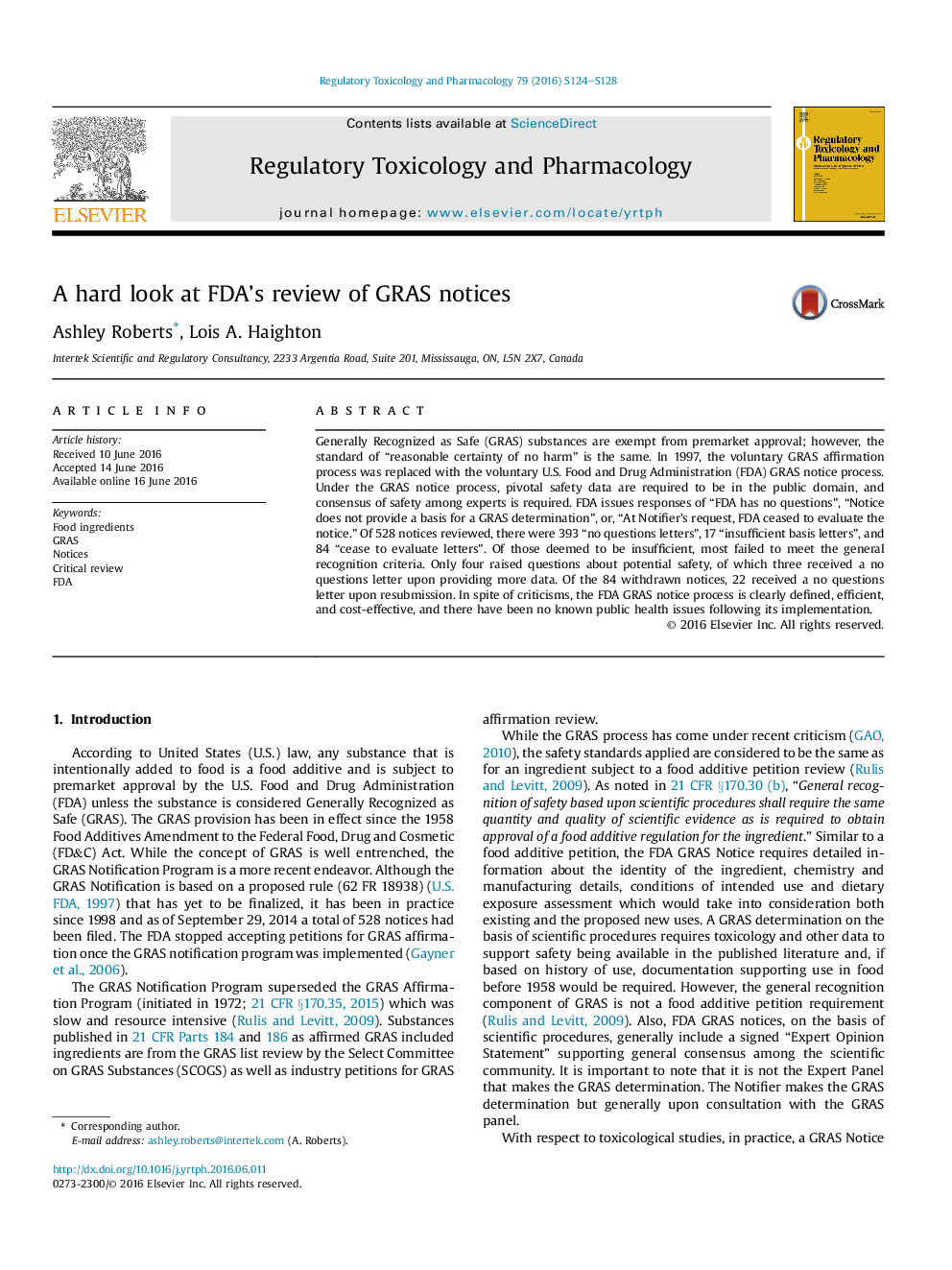| Article ID | Journal | Published Year | Pages | File Type |
|---|---|---|---|---|
| 2592271 | Regulatory Toxicology and Pharmacology | 2016 | 5 Pages |
•The FDA GRAS notice process has been criticized as not providing sufficient oversight.•Of 528 notices reviewed, most (393) received a No Questions Letter from the FDA upon first submission.•Safety concerns were raised for only 4 Notices, 3 of which received a No Questions Letter upon resubmission.•The process is clearly defined, efficient, & cost-effective, with no known public health issues since its implementation.
Generally Recognized as Safe (GRAS) substances are exempt from premarket approval; however, the standard of “reasonable certainty of no harm” is the same. In 1997, the voluntary GRAS affirmation process was replaced with the voluntary U.S. Food and Drug Administration (FDA) GRAS notice process. Under the GRAS notice process, pivotal safety data are required to be in the public domain, and consensus of safety among experts is required. FDA issues responses of “FDA has no questions”, “Notice does not provide a basis for a GRAS determination”, or, “At Notifier’s request, FDA ceased to evaluate the notice.” Of 528 notices reviewed, there were 393 “no questions letters”, 17 “insufficient basis letters”, and 84 “cease to evaluate letters”. Of those deemed to be insufficient, most failed to meet the general recognition criteria. Only four raised questions about potential safety, of which three received a no questions letter upon providing more data. Of the 84 withdrawn notices, 22 received a no questions letter upon resubmission. In spite of criticisms, the FDA GRAS notice process is clearly defined, efficient, and cost-effective, and there have been no known public health issues following its implementation.
